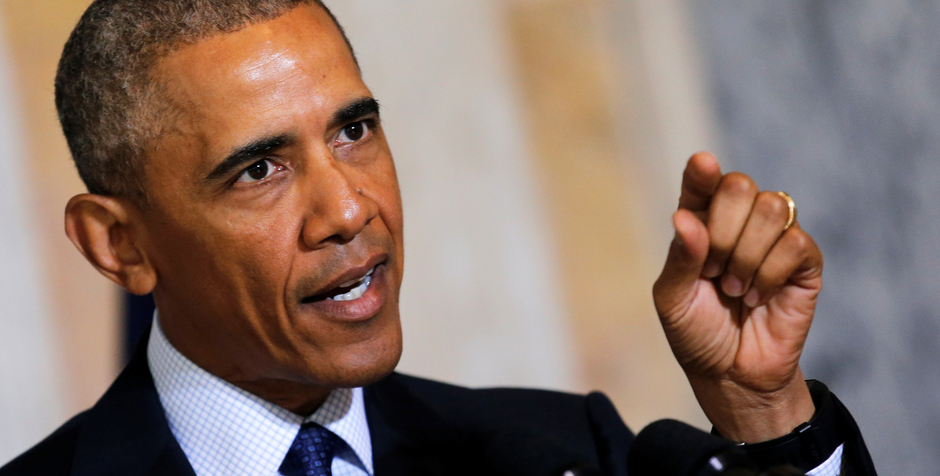Time for a Serious Bipartisan Discussion of the Administration’s Anti-Terror Campaign
Less than a week ago, Omar Mateen launched his murderous jihadist attack on Orlando.
On Tuesday – three days after the massacre – President Obama leveled a broadside at his critics who have suggested that he has consistently downplayed the terror threat.
Then, on Thursday, CIA Director John Brennan acknowledged that ISIS – the Islamic State – has deployed a large group of Western fighters who could attack the West at any moment. Director Brennan also agreed that ISIS is continuing to inspire sympathizers with no direct links to ISIS itself.
At the same time, Director Brennan directly contrasted President Obama’s claims by stating that, while the U.S. efforts have had some success on the battlefield and in the financial realm, we have not diminished what he called the group’s terrorism capability and global reach.”
As battlefield losses mount, ISIS appears to have expanded its training campaign as it attempts to deploy operatives to engage in additional attacks on Western targets. These increasingly interconnected global activities include the exploration of a variety of means for infiltrating the West via refugee flows, smuggling routes, and through legitimate travel. At the same time, Director Brennan observes that ISIS will have to suffer even heavier losses of territory, manpower and money for its terrorist capacity to decline significantly.
Director Brennan’s analysis is welcomed, forthcoming, and candid. His assessment of a growing and increasingly dangerous ISIS is certainly disturbing, but the American people deserve the truth about ISIS – not a calculated and political analysis put forth by the President, who continues to falsely maintain that ISIS has been contained and is on the run.
Director Brennan’s comments raise a crucial question, why hasn’t the U. S. already unleashed a relentless international campaign to cripple ISIS in order to deprive this terror group of territory, manpower, and money?
This question surfaces because it appears that the Obama Administration has not taken the troubling information provided by its own CIA director seriously.
This raises a further, even more disturbing question: why not?
At the same time, the national press reports that the FBI faces a growing surveillance gap – meaning that there are more U.S. based jihadists than the federal government is capable of watching.
As we have argued previously, the Orlando nightclub attack follows a disturbing pattern. Just like the Boston Marathon bombing, the Fort Hood shooting and the Little Rock military recruiting station attack in 2009, Omar Mateen was previously on the FBI’s radar two different times.
While these intelligence failures may have been caused, in part, by directives issued by the Department of Justice (DOJ) and the Department of Homeland Security (DHS), it is clear that surveillance gaps have contributed to the failure to thwart a number of terrorist attacks.
Although government directives seem to require FBI agents to walk a tightrope between doing their job and complying with rules that de-emphasize the connection between radical Islam and terror, three questions emerge:
First, Americans should ask whether Obama Administration policies and decisions have compromised FBI efforts?
Second, when the FBI asks citizens to report suspicious activity, will that make any difference, if the FBI has engaged in a disturbing pattern suggesting that the agency, after already acquiring solid leads, has repeatedly declined to take action for whatever reason?
Third, does the FBI need more resources, or does the organization need to take the gloves off instead of being forced to follow misguided and dangerous DOJ/DHS directives that emphasize political correctness rather than the protection of the American people and our homeland?
Lastly, since Secretary of State John Kerry has recently acknowledged that some terrorists are radicalized for reasons of religion and since the U.S. and the West have failed to stop ISIS attacks, it’s long past time for a serious bipartisan political discussion and debate on the future of America’s terror efforts.
The question becomes, will the presumptive nominees of both major parties for President of the United States and the American people come together in order to have a somber discussion about terrorism, one that is devoid of rancor and accusations?
Thus far, unfortunately, the dialogue and discourse has not been anywhere near the level needed. The greatest and strongest nation in the world deserves an in-depth, serious discussion about how to keep us safe and how to eliminate the biggest threat to the world in decades.
Without such a thorough discussion, one that thoroughly examines the current Administration’s failures, the terrorists win.
The American people must demand better. The American people deserve better.
